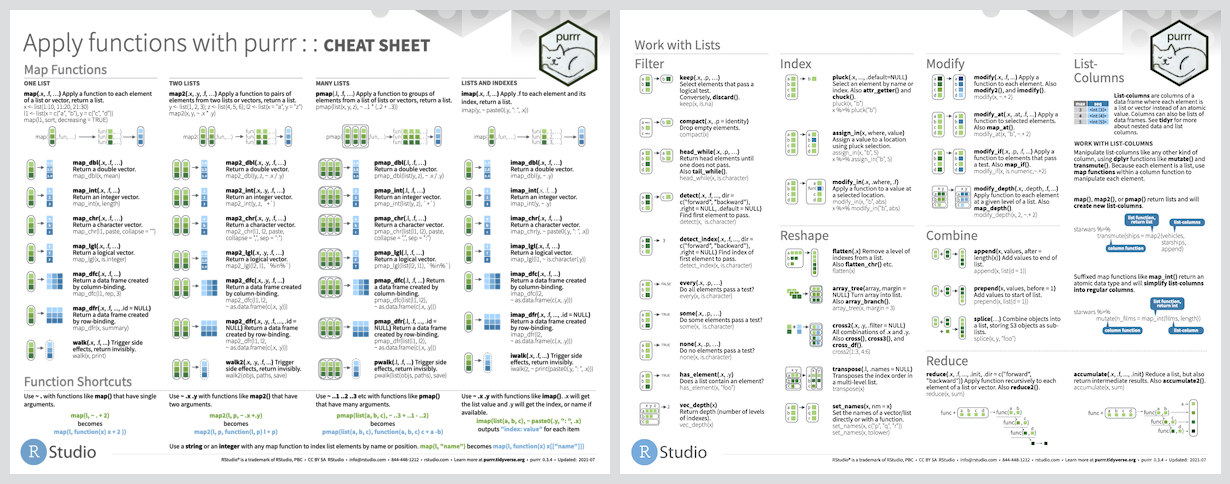Functional Programming Tools (original) (raw)
Overview
purrr enhances R’s functional programming (FP) toolkit by providing a complete and consistent set of tools for working with functions and vectors. If you’ve never heard of FP before, the best place to start is the family of [map()](reference/map.html) functions which allow you to replace many for loops with code that is both more succinct and easier to read. The best place to learn about the [map()](reference/map.html) functions is the iteration chapter in R for data science.
Installation
# The easiest way to get purrr is to install the whole tidyverse:
install.packages("tidyverse")
# Alternatively, install just purrr:
install.packages("purrr")
# Or the the development version from GitHub:
# install.packages("pak")
pak::pak("tidyverse/purrr")Cheatsheet
Usage
The following example uses purrr to solve a fairly realistic problem: split a data frame into pieces, fit a model to each piece, compute the summary, then extract the R2.
library(purrr)
mtcars |>
split(mtcars$cyl) |> # from base R
map(\(df) lm(mpg ~ wt, data = df)) |>
map(summary) %>%
map_dbl("r.squared")
#> 4 6 8
#> 0.5086326 0.4645102 0.4229655This example illustrates some of the advantages of purrr functions over the equivalents in base R:
- The first argument is always the data, so purrr works naturally with the pipe.
- All purrr functions are type-stable. They always return the advertised output type (
[map()](reference/map.html)returns lists;[map_dbl()](reference/map.html)returns double vectors), or they throw an error. - All
[map()](reference/map.html)functions accept functions (named, anonymous, and lambda), character vector (used to extract components by name), or numeric vectors (used to extract by position).
